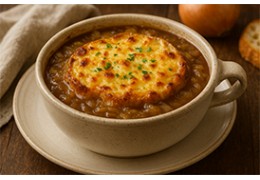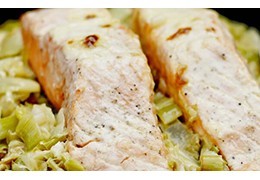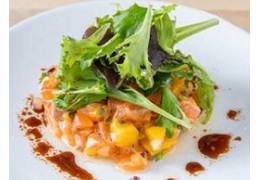Wine and food pairing: barbecued sea bream
In this article, we present the best food and wine pairings to sublimate a barbecued sea bream, focusing on wines from organic, biodynamic or natural agriculture.
Golden, gray or pink sea bream is characterized by fine, tender, highly flavored white flesh. Barbecued, it develops a subtle contrast between the soft interior of the fillet and the crispy skin marked by the grill. This cooking method amplifies the iodized aromas while adding a smoky and sometimes slightly caramelized texture. When simply seasoned with salt, pepper, olive oil, thyme, rosemary, fennel or even lemon zest, sea bream remains in a pure register, without invasive sauces or heavy accompaniments.
So, to respect this aromatic lightness, it's best to avoid woody or very opulent wines, which would overwhelm the finesse of the fish. The ideal wine for barbecued sea bream should be dry, lively, saline or mineral, with a pleasing acidity and aromas of flowers, Mediterranean herbs, white fruit or citrus.
The The blancs de Provence, particularly those made from Rolle (Vermentino), Clairette, Ugni Blanc and Bourboulenc, offer moderate acidity, lovely salinity and notes of lemon peel, fennel and fresh pear.
The dry chenins of the Loire (Montlouis, Saumur, Savennières) and the Melon de Bourgogne (Muscadet Sèvre-et-Maine sur lie) possess lively acidity, beautiful minerality and a straightforwardness very well suited to the iodized expression of sea bream. They prolong the gustatory experience by accentuating the dish's marine character.
Appellations such as Limoux, Fénelon, Picpoul de Pinet or Collioure blanc offer lively, sunny vintages. Organic Grenache blanc, Maccabeu or Marsanne provide structure and roundness without heaviness. The Domaine Gauby with its cuvée Calcinaire, biodynamically farmed, produces whites of rare purity, perfect for grilled sea bream.
A Chignin-Bergeron (Roussanne from Savoie), a Roussette or a white Côtes-du-Jura can make original but frighteningly effective pairings. Their natural acidity and floral aromatic palette are ideally suited to grilled fish, especially if accompanied by fennel or lemon.
A well-chosen rosé is the perfect complement to a fine wine.
A well-chosen rosé can perfectly accompany grilled sea bream, provided it has a certain structure and freshness. We're thinking here of Corsican rosés, for example, such as those from domaine Giacometti. These wines offer a full, taut mouthfeel, with notes of tart red fruit, garrigue and a salivating finish.
While fish most often calls for whites or rosés, some very light, low-tannin reds served a little chilled can work wonderfully with grilled sea bream, such as the Saint-Nicolas-de-Bourgueil du Clos des Quarterons. Pineau d'Aunis, Grolleau or Gamay vintages on granite come to mind here, especially if the sea bream is served with fresh herbs or a light tomato salsa.
A white wine for grilled sea bream should be served between 10 and 12°C, so as not to freeze the aromas while retaining freshness. Rosés can be served slightly cooler (8 to 10°C). For light reds, a temperature of 13 to 15°C is recommended. The wine should be opened a few minutes before serving to allow proper aeration, especially if it is young.






